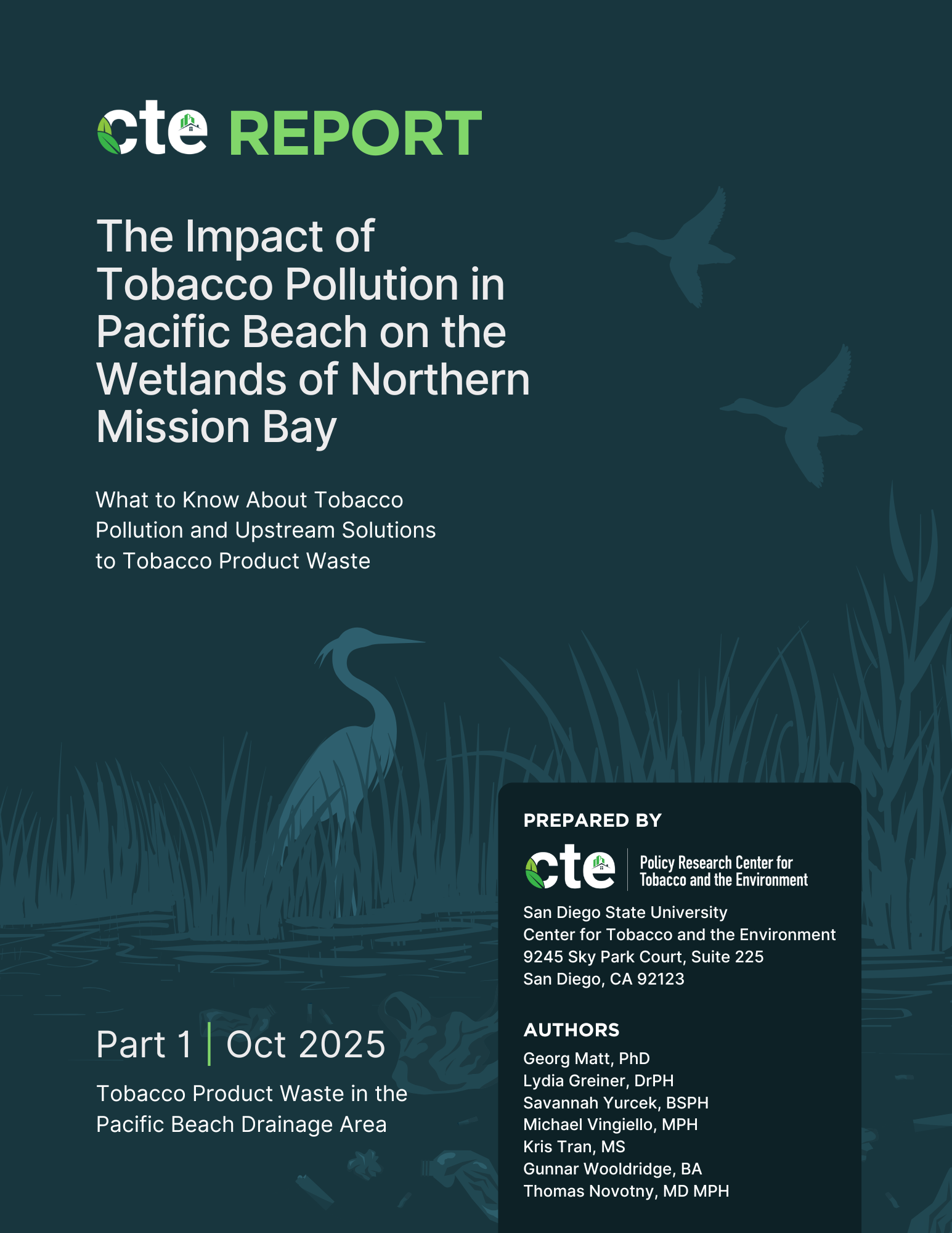
San Diego, CA — October 2025 — The Policy Research Center for Tobacco and the Environment, a partnership between SAY San Diego and San Diego State University, has released Part 1 of its new report, The Impact of Tobacco Product Waste in Pacific Beach on the Wetlands of Northern Mission Bay. The study highlights the environmental threat posed by tobacco product waste (TPW) entering San Diego’s coastal ecosystems.
Click here to read Part 1 of the report today.
Researchers mapped, categorized, and collected discarded tobacco products near 29 storm drains in Pacific Beach, which flow into the northern wetlands of Mission Bay. Findings revealed that 87% of the waste consisted of cigarette butts, with an average of 80 new butts discarded daily in the area.
As they break down, cigarette butts release microplastics, heavy metals, and toxic chemicals, contaminating water and potentially threatening sensitive wildlife habitats. Just one cigarette butt can pollute up to 1,000 liters of water, with the potential to harm fish and other wildlife.
Despite cleanup efforts, tobacco litter quickly reaccumulated. Estimates show cleanups would need to be conducted every other day to achieve a 90% reduction in the “steady state” of pollution in the area.
The report urges policymakers to consider “upstream” policy solutions that address tobacco pollution at the source and hold the producers of these products accountable, rather than relying on ineffective and costly “downstream” strategies like cleanups.
Part 2 of the report, which will present soil and water testing results from the wetlands, is scheduled for release soon.
Contact:
Policy Research Center for Tobacco and the Environment
Dr. Georg Matt

